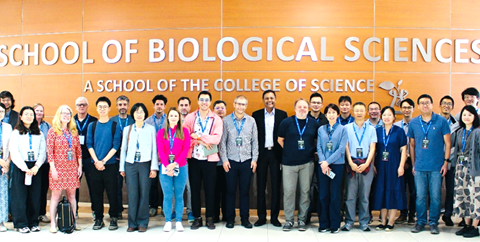Einstein Telescope: A Look At The Dawn Of The Universe
IAS and SPMS Distinguished Speaker Seminar
On 15 May 2025, we welcomed Professor Fernando Ferroni; former President of Italy’s National Institute for Nuclear Physics (INFN), Emeritus Professor at the Gran Sasso Science Institute (GSSI), and Co-Project Director of the Einstein Telescope (ET) Organisation, for a Distinguished Speaker Seminar titled “Einstein Telescope: A Look at the Dawn of the Universe”. Gracing the seminar as Guest-of-Honour was His Excellency Dante Brandi, Ambassador of the Italian Republic to Singapore. The seminar was co-organised by NTU’s Institute of Advanced Studies (IAS), and the School of Physical & Mathematical Sciences (SPMS) in partnership with the Embassy of Italy. The seminar highlighted the vital role of international partnerships in cutting-edge research; and drew in academics, students, and enthusiasts eager to hear about the future of gravitational-wave astronomy.

[From Left]: Ms Wanda Preiser (Office of International Engagement, NTU), Dr Leek Meng Lee (SPMS, NTU), Prof Guan Yong Liang (EEE, NTU), Prof Sum Tze Chien (Director, IAS NTU), His Excellency Dante Brandi (Ambassador of the Italian Republic to Singapore), Prof Fernando Ferroni, Dr Nicola Bianchi (Diplomatic Counsellor, Embassy of Italy in Singapore), and Prof Cesare Soci (SPMS and EEE, NTU).
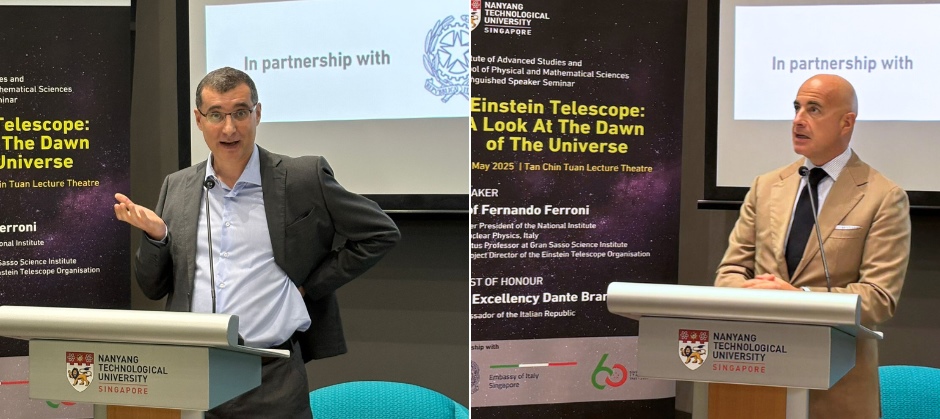
[Left] Prof Cesare Soci delivered the welcome speech; [Right] His Excellency Dante Brandi highlighted
Italy–Singapore ties and he encouraged local talents to engage with the Einstein Telescope through
precision engineering and data science.
Prof Ferroni began with an overview tracing gravitational-wave astronomy from Einstein’s prediction to the first detection by LIGO in 2015. He spotlighted GW170817, the 2017 neutron-star merger that emitted both rippling spacetime and a gamma-ray flash, inaugurating multi-messenger astronomy. This dual observation revealed that such collisions forge heavy elements, introduced “standard sirens” for measuring cosmic expansion independently of light, and confirmed that gravitational waves travel at light speed, tightly constraining deviations from general relativity. These breakthroughs are reshaping our understanding of stellar life cycles, dense matter physics, and the universe’s earliest moments.

A captivated audience listened intently to Prof Ferroni, reflecting the strong interest and curiosity sparked by his talk.
Building on LIGO and Virgo’s success, the Einstein Telescope is a proposed third-generation observatory featuring three 10 km-arm interferometers in an underground triangular layout. Each vertex houses a dual-band system, which are cryogenically cooled mirrors for low-frequency signals and megawatt-class lasers for high-frequency detections - supplemented by quantum “squeezed” light and active noise suppression. These advances promise up to 100× greater sensitivity, expanding the observable universe by orders of magnitude and yielding tens of thousands of detections per year, from black-hole and neutron-star mergers to speculative sources like primordial black holes. Europe’s ET and the U.S. Cosmic Explorer will form a global network by the 2030s, driving breakthroughs in fundamental physics and spurring technological spinoffs in cryogenics, precision lasers, and data science. With Italy championing ET in the European infrastructure roadmap, site studies are underway to transform a former mine into a world-class research facility and regional innovation hub.
With over 1,500 researchers from over 25 countries already contributing, the Einstein Telescope (ET) exemplifies large-scale collaboration. Prof Ferroni noted that Europe’s ET and America’s Cosmic Explorer will operate in tandem, forming a global network of third-generation detectors by the 2030s. Prof Ferroni also highlighted Asia’s growing role, citing Japan’s KAGRA detector, and encouraged Singaporean participation in both current gravitational-wave efforts and next-generation projects.
-and-prof-fernando-ferroni.jpg?sfvrsn=f9dbc696_1)
A lively Q&A session ensued after the seminar, with Dr Nicola Bianchi, Prof Cesare Soci (moderator) and Prof Fernando Ferroni.
A lively Q&A followed with Dr Nicola Bianchi and Prof Fernado Ferroni, moderated by Prof Cesare Soci. The conversation delved into quantum squeezing, underground construction challenges, and the philosophical implications of probing the universe’s infancy. Attendees praised the clarity and enthusiasm of Prof Ferroni’s delivery, reflecting NTU’s commitment to bridging world-class science with the local community.
As the seminar closed, participants left inspired by the vision of the Einstein Telescope; an instrument poised to illuminate the universe’s dawn and a project that epitomises international teamwork.
Written by: Zainab Binte Iskandar | NTU School of Humanities (Philosophy), Undergraduate student
“I enjoyed the signal processing aspect and the ambition of the Einstein Telescope.” – Lee Gao Yu (PhD student, EEE)
“I particularly enjoyed exploring knowledge out of my field.”– Zhuang Yihao (PhD student, IGP-ERI@N)
“The explanation of noise categorisation in such a set-up is very ingenious” – John Tan (PhD student, SPMS)
Watch the recording here


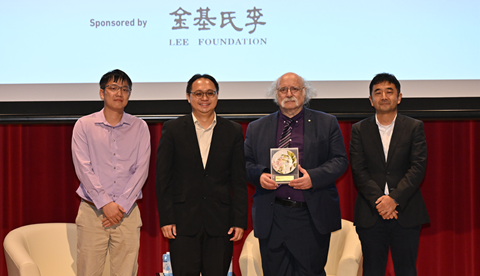
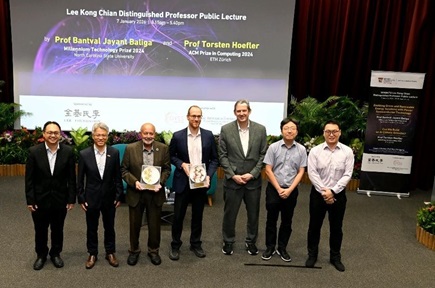
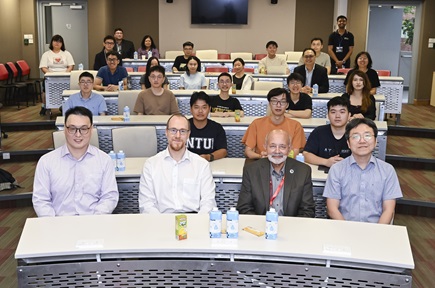
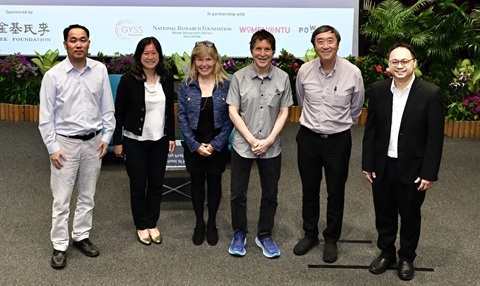
.tmb-listing.jpg?Culture=en&sfvrsn=c45c3c7e_1)
